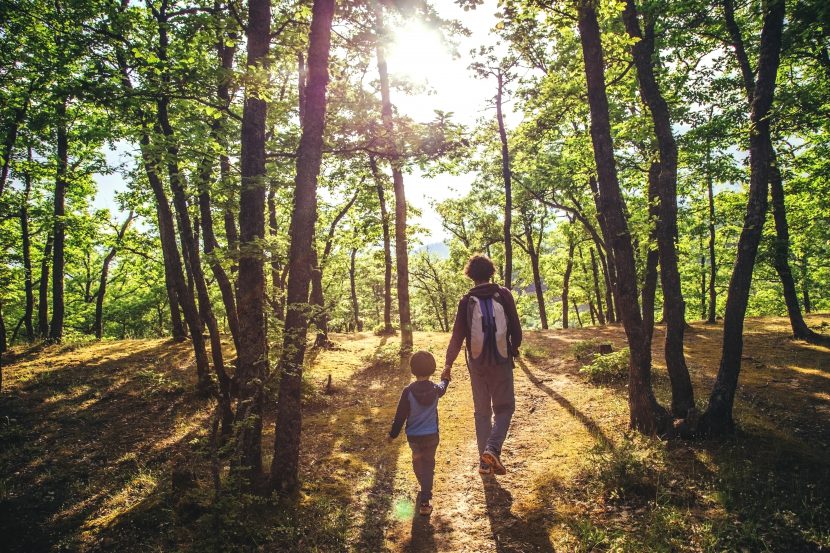The right to a safe, clean, healthy and sustainable environment has been officially recognized as one of the fundamental human rights. This is a very important step forward, which took place on October 8, 2021, when the United Nations Human Rights Council approved Resolution 48/13, calling on UN Member states to cooperate to implement this right. On the same day, the Human Rights Council adopted Resolution 48/14, establishing also the position of a Special Rapporteur on the promotion and protection of human rights in the context of climate change.
The recognition of the right to a safe, clean, healthy and sustainable environment is an important step for a world where nearly a quarter of deaths in a year are related to environmental hazards. Indeed, the numbers released by the World Health Organization make us reflect: it is estimated that 24% of all global deaths are linked to the environment, which is roughly 13.7 million deaths a year. (World Health Organization, 2021). Among these risks, the WHO lists factors such as air pollution and exposure to hazardous substances (WHO, 2021).
Before Resolution 48/13: national, regional and International overview
The right to a healthy environment is already recognized with different phraseologies in the state law of more than 150 states, which recognize the importance of environmental conditions for the existence and well-being of humanity (EJIL:Talk!, 2021).
To date, regionally, the right to a healthy environment has been recognized in regional human rights treaties (in Africa and Latin America) and “sectoral” treaties regarding access to information, justice, and public participation in environmental matters (in Europe and Latin America) (EJIL:Talk!, 2021).In addition, at the European level, in September 2021, the Parliamentary Assembly of the Council of Europe passed a Resolution supporting the adoption of an Additional Protocol to the European Convention on Human Rights to anchor the right to a safe, clean, healthy and sustainable environment in the European human rights system (Parliamentary Assembly, 2021).
Instead, at the United Nations level, the Human Rights Council has been considering the issue of human rights and the environment since 2012 (EJIL:Talk!, 2021).In particular, in 2018, the UN Special Rapporteur on Human Rights and the Environment, after reviewing a large body of case law and literature, concluded that the explicit recognition of the right to a healthy environment would provide real and effective benefits, such as an elevation of the importance of environmental protection at the legal level and a basis for the enactment of stronger environmental laws, also creating opportunities for improved access to justice (Universal Rights Group, 2018).
Indeed, according to the Special Rapporteur, in a world that too often emphasizes differences between people, the right to a healthy environment reflects a fundamental truth that should unite us all (OHCHR, 2021). Everyone’s health and quality of life depend on clean air, safe water, sustainably produced food, a stable climate, and healthy biodiversity and ecosystems.
Thus, explicit recognition of the right to a healthy environment would have the utility of enabling individuals, groups, civil society organizations, and the judiciary, to contribute to a better implementation and enforcement of environmental laws (OHCHR, 2021) And it is on this basis that the Special Rapporteur recommended that the Human Rights Council recognized this right in a global instrument, such as a United Nations General Assembly resolution (OHCHR, 2021). The activities surrounding the recognition of this right culminated in the adoption of Resolution 48/13 on October 8, 2021.
Steps towards Resolution 48/13
The proposal for the adoption of Resolution 48/13 had been put forward by Costa Rica, Maldives, Morocco, Slovenia and Switzerland and the green light came with a large majority: 43 votes in favor, 4 abstentions (UN News, 2021). The countries that did not vote in favor of recognizing the environment as a fundamental human right were China, Japan, India and Russia (UN News, 2021). There was suspense over the vote of Great Britain, which had recently shown itself to be skeptical about the proposal, but in the end voted in favor (Un News, 2021).
The Human Rights Council recognized for the first time that having a safe, clean, healthy and sustainable environment is indeed a human right and called on the states to work together, and with other partners, to implement this newly recognized right.
In the text of the Resolution is indeed made clear that: “The Council recognizes the right to a safe, clean, healthy and sustainable environment and encourages states to adopt policies for the enjoyment of the right to a safe, clean, healthy and sustainable environment, including with respect to biodiversity and ecosystems, as appropriate, and invites the General Assembly to consider this issue.” (Resolution 48/13, 2021)
It is pivotal to remember that the Human Rights Council’s decisive action in recognizing the human right to a safe, clean, healthy and sustainable environment is about protecting people and the planet: the air we breathe, the water we drink, the food we eat. It is also about protecting the natural systems that are fundamental preconditions for the life and livelihood of all people, wherever they live (OHCHR, 2021).

The UN High Commissioner for Human Rights, Michelle Bachelet, welcomed this historic decision and called on states to “take bold action to give immediate and real effect to the right to a healthy environment” (OHCR, 2021). Michelle Bachelet also welcomed the fact that the Resolution “clearly recognizes that environmental degradation and climate change are linked to human rights crises” and commented that is pivotal “to ensure that this resolution on the right to an environment acts as a springboard for a greater push for economic, social and environmental policies that protect people and nature” (OHCHR, 2021).
Moreover, David Boyd, UN Special Rapporteur on Human Rights and Environment, commenting on the adoption of the Resolution said: “The future of the world looks a little brighter today. The United Nations, in a historic development, has recognized for the first time that everyone everywhere has the human right to live in a safe, clean, healthy and sustainable environment. This has the potential to change lives in a world where the global environmental crisis causes more than 9 million premature deaths each year and will trigger constitutional changes and stronger environmental laws, with positive implications for air quality, clean water, healthy soil, sustainably produced food, green energy, climate change, biodiversity and toxic use.” (Geneva Environment Network, 2021)
Furthermore, according to Inger Andersen, Executive Director of the United Nations Environment Programme (UNEP), “the adoption of the resolution on the right to a clean, healthy and sustainable environment by the United Nations Human Rights Council is a watershed moment for environmental justice”. (UN Environment Programme , 2021) Inger Andersen also believes that the adoption of this Resolution is a message to a billion of children at a very high risk of the impacts from climate change. “A healthy environment is your right; no one can take away your nature, clean air and water, or a stable climate. The United Nations Environment Program sees this as an important step in building the planet as a safe and equitable home for all.” (UN Environment Programme, 2021)
This right is indeed rooted in the 1972 Stockholm Declaration. Five decades later, it is very encouraging to see it formally recognized globally through a United Nations Human Rights Council Resolution.
Importance and practical effects of Resolution 48/13
Even if Resolution 48/13 is not legally binding, its value should not be underestimated. Indeed, this Resolution confirms that the right to a safe, clean, healthy and sustainable environment should be universally protected and could support efforts to formally recognize the right to a healthy environment by the United Nations General Assembly, the Council of Europe and those states that do not yet explicitly provide for this right in their domestic legal systems (EJIL:Talk!, 2021).
Indeed, the formal recognition at the United Nations level of the right to a healthy environment as a universal human right now makes it crystal clear that all states have an obligation to protect, respect and fulfill this right (OHCHR, 2021). This will strengthen the support for states at the national level to improve their performance on environmental issues, including those that have not yet done so to formally recognize the right to a healthy environment in their national legislation (OHCHR, 2021). It will also provide a much-needed impetus for continued action based on global rights in the face of the environmental and climate crisis (Global Alliance of National Human Rights Institutions (GANHRI, 2021).
Moreover, the scope of Resolution 48/13 is even broader as it provides an additional tool to challenge state and corporate actors for failing to take timely and appropriate action to address the triple environmental crisis of climate change, pollution, and loss of nature (OHCHR, 2021). In addition, given that national court decisions are often based on the right to a healthy environment, even in countries where the right is not explicitly recognized in domestic law, this Resolution may also encourage progressive judges in adjudicating environmental disputes around the world (EJIL:Talk!, 2021).
In fact, this Resolution is especially important for all environmental human rights defenders who work, often at great personal risk, to safeguard the land, air, water, and ecosystems on which we all depend (Devex, 2021). It is also vital for the people and communities who suffer disproportionate impacts of environmental degradation, including women, children, indigenous people, and other potentially vulnerable and marginalized populations (Devex, 2021). Therefore, after this Resolution, governments are urged to include the right to a safe, clean, healthy, and sustainable environment in their constitutions and legislation (OHCHR, 2021).
Special Rapporteur in the context of climate change (Resolution 48/14)
The Council, in the same session, decided to appoint, for a period of three years, a Special Rapporteur on the promotion and protection of human rights in the context of climate change (OHCHR, 2021). Resolution 48/14 was adopted by a vote of 42 in favor, 1 against (Russia) and 4 abstentions (China, Eritrea, India, Japan) (OHCHR, 2021).
The Resolution was presented by Bahamas, European Union, Fiji, Panama, Paraguay, Sudan and Marshall Islands, and provides that the Special Rapporteur has, among the other responsibilities, the duty to study and identify how the adverse effects of climate change affect the full and effective enjoyment of human rights, to provide guidance to states related to the adoption of a human rights-based approach to climate adaptation and mitigation policies, and to work closely with states to support national efforts while being attentive to country-specific challenges (OHCHR, 2021). It is now time to raise international awareness and understanding of the profound interdependence between human rights, a healthy environment and combating climate change.
Sustainably moving forward
The adoption of Resolutions 48/13 and 48/14 represents indeed an increased awareness of the need to incorporate consideration of human rights into environmental law and policy-making, and they were adopted in the wake of a wave of global advocacy to close the accountability and enforcement gaps that have always plagued environmental governance, both internationally and domestically.
Humanium has been working with other international NGOs as part of the Working Group on Environment to see the right to a safe, clean, healthy and sustainable environment recognized which is why we are very proud of this milestone reached at the United Nation’s level. It is indeed important to take a moment to thank more than 1,300 civil society organizations and indigenous peoples groups, the 90,000 children around the world, the Global Alliance of National Human Rights Institutions (GANHRI), and private sector stakeholders for the relentless advocacy on the full international recognition of this right (OHCHR, 2021).
Finally, the decision taken by the Human Rights Council has marked a further step in the direction of sustainable development. However, it will remain necessary to understand which concrete changes will be adopted by individual states in the near future. Only time will tell us how much has the world changed on October 8, 2021.

If you would like to contribute to achieving a more sustainable world for children, consider making a donation, volunteering or becoming our member.
Written by Federica Versea


